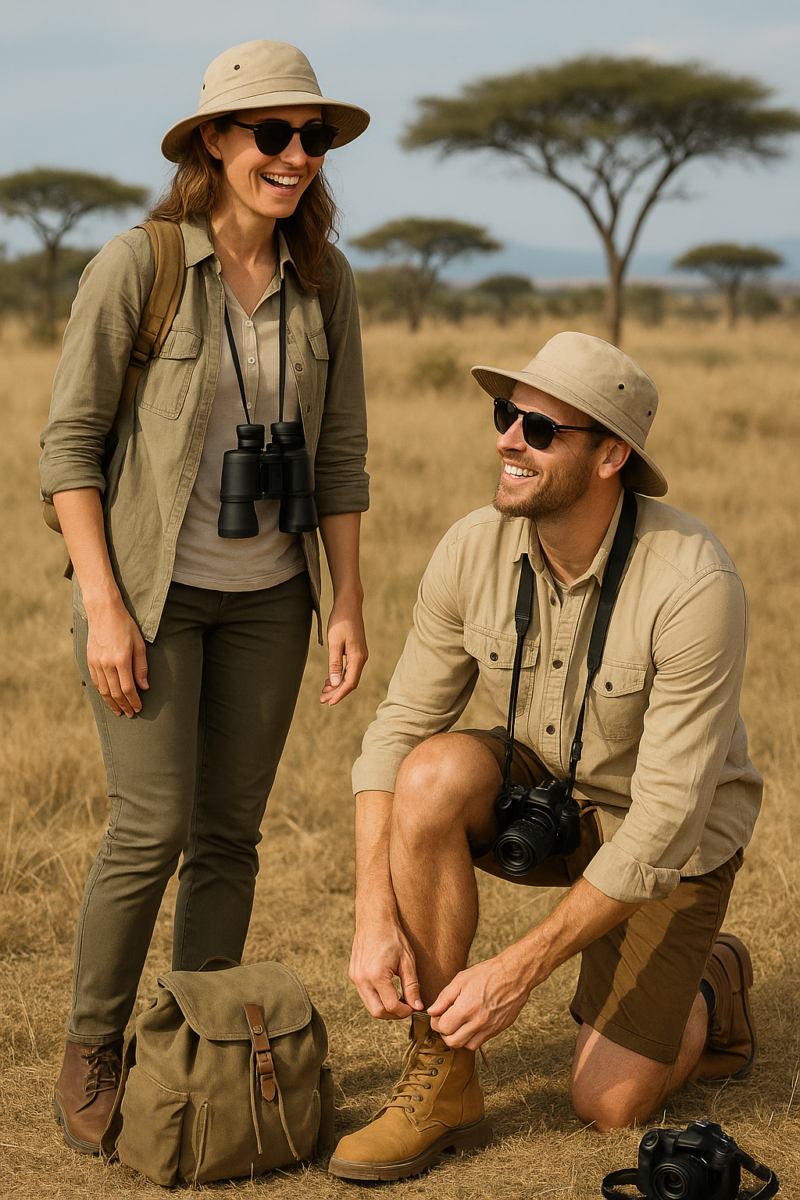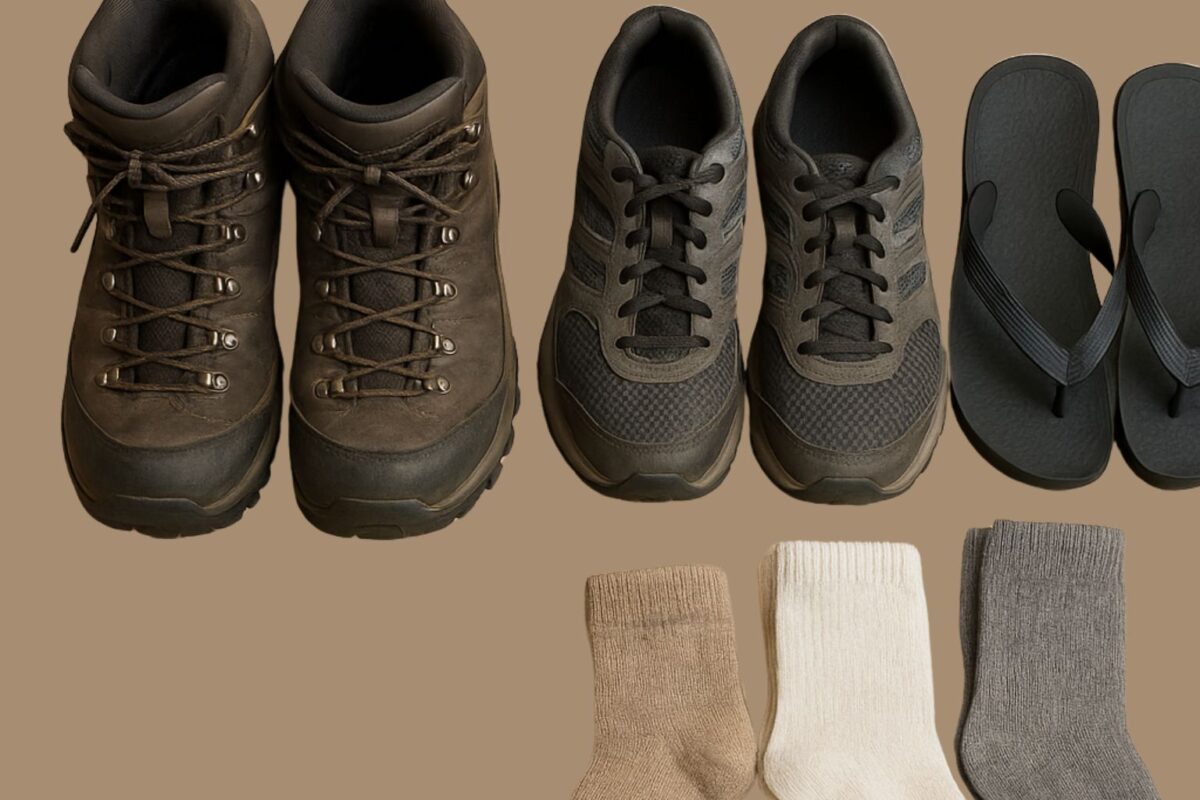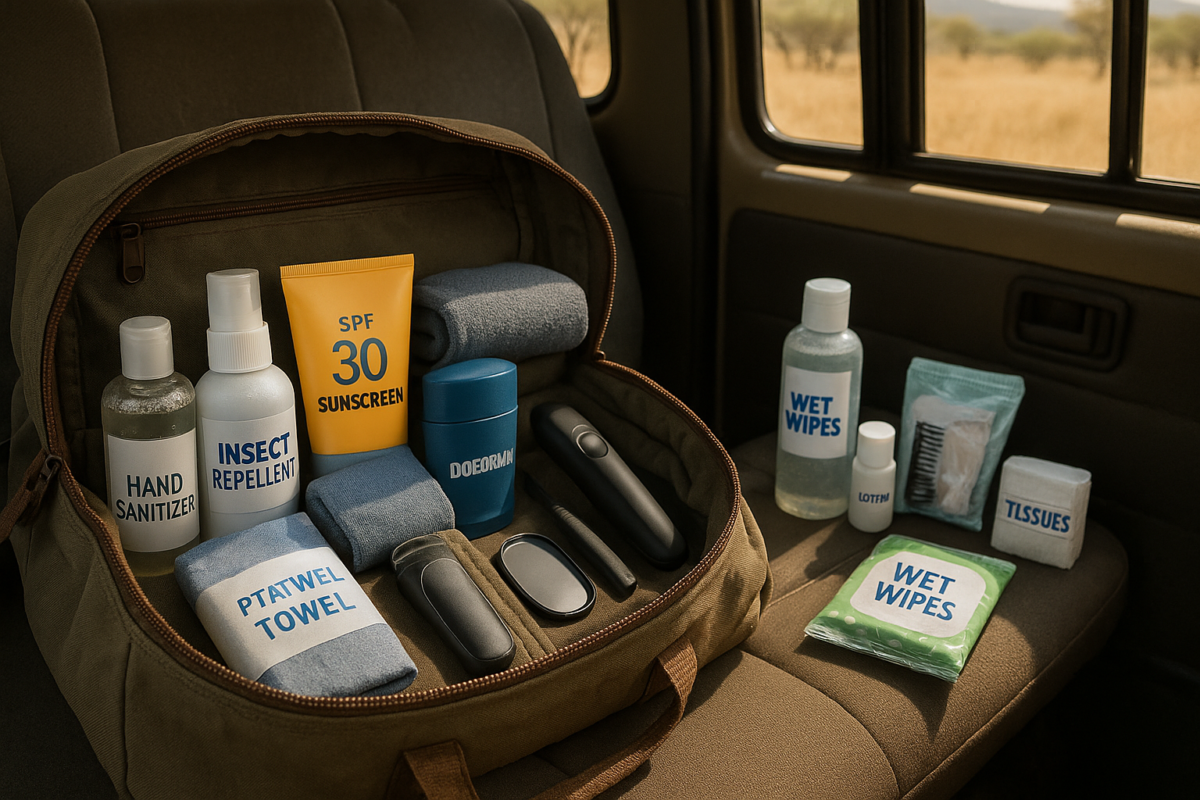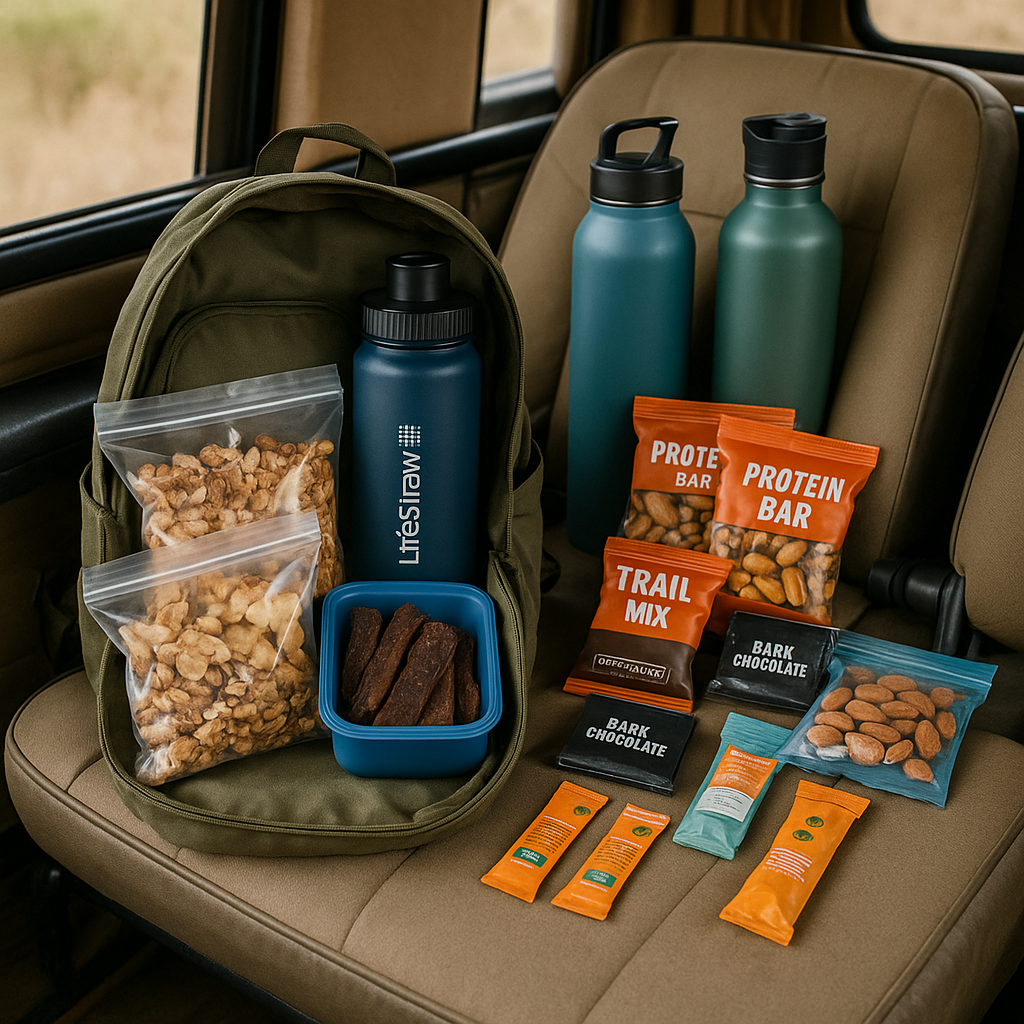
Uganda, the “Pearl of Africa,” offers one of the most diverse and unforgettable safari experiences on the continent. Whether you are planning classic game drives in Murchison Falls, tracking chimpanzees in Kibale, or undertaking the challenging gorilla trek in Bwindi, knowing what to bring is crucial for a comfortable and seamless adventure.
This Uganda Safari Packing List is your definitive, comprehensive guide. It covers everything necessary for all types of Ugandan safaris, from essential travel documents to specialized gear for your time in the bush.
Essential Travel Documents and Health Preparations
Your trip can’t start without the correct paperwork and medical readiness. Organize these critical items long before your departure date.
Mandatory Documents
- Passport: Must be valid for at least six months beyond your travel dates and have at least two blank pages.
- Visa: Most visitors must apply online via the Uganda Electronic Visa Portal. Consider the East African Tourist Visa if visiting Rwanda or Kenya as well.
- Copies: Carry both printed and electronic copies of your passport, flight itinerary, and visa confirmation.
- Travel Insurance: This is non-negotiable. Choose a policy that explicitly covers medical emergencies, trip cancellations, and, critically, emergency evacuation from remote safari areas.
Health and Medication
- Yellow Fever Certificate: Vaccination is mandatory. You must present a valid certificate upon entry.
- Malaria Prophylaxis: Consult your doctor about anti-malarial medication (like Malarone or Doxycycline). Start taking it before you arrive and continue for the prescribed period after you leave.
- Prescriptions: Bring enough personal prescription medicine for the entire trip, plus a few extra days. Keep them in their original containers with copies of the prescriptions.
- Routine Immunizations: Ensure you are current on common vaccines like MMR, DPT, Hepatitis A and B, and Typhoid.
Uganda Safari Parking List: Essential Clothing and Footwear
The key to safari clothing is layers, durability, and color choice. You need to be protected from insects, thorny bushes, and the strong African sun during your Uganda safari.

Best Safari Apparel
We recommend prioritizing earth tones such as khaki, olive green, grey, and beige. These colors blend into the environment and are less likely to distract wildlife.
- Long-Sleeve Shirts (3-4): Lightweight, moisture-wicking fabrics are best. They protect you from the sun and mosquito bites, especially at dawn and dusk.
- Convertible/Durable Trousers (2-3): Zip-off pants are highly functional, transforming from trousers to shorts as the temperature rises.
- Fleece or Light Jacket (1): Essential for cool safari evenings, early morning game drives, and high-altitude areas.
- Rain Gear: A waterproof jacket and trousers are crucial, especially for the unpredictable tropical climate.
- Socks: Pack thick, moisture-wicking or wool-blend socks. Bring extra pairs, as socks can easily get wet or muddy.
🚫 Crucial Tip: Avoid black and dark blue clothing. These colors are known to attract Tsetse flies, which deliver a painful bite. Also, avoid bright whites as they show dirt immediately.
Essential Safari Footwear
The footwear you pack depends on your activities, but comfort is paramount for long days on the move.

- Waterproof Hiking Boots: If you are planning gorilla trekking or extensive chimpanzee tracking, these are an absolute must. They require excellent ankle support and a good tread. Break them in before your trip!
- Walking Shoes/Sneakers: Comfortable, closed-toe shoes for light walking, game drives, and use around the lodge.
- Flip-Flops/Sandals: Simple slip-ons for relaxing at the camp or for shower use.
Specialized Safari Gear for Trekking Activities
While the main list is for general safari, these items are essential if your itinerary includes hiking, gorilla, or chimpanzee tracking in the dense forests of Bwindi or Kibale.
- Gardening Gloves: Tough gloves are recommended for trekking to protect your hands from thorns, stinging nettles, and sharp branches as you grip the trail.
- Gaiters: These canvas or synthetic sleeves protect your ankles and boots from mud, water, and insects during deep forest hikes.
- Daypack: A small, water-resistant daypack is perfect for carrying your camera, water, snacks, and rain gear.
- Walking Stick: Often provided by most lodges or at the park headquarters, but bringing your own sturdy, foldable stick can be helpful.
Technology, Optics, and Photography
Don’t miss a moment! The right gear enhances your wildlife viewing experience dramatically.
| Category | Must-Pack Items | Why You Need It |
| Optics | Binoculars (8x or 10x) | Essential for spotting distant wildlife and birds during game drives and boat safaris. Don’t rely on your guide’s pair. |
| Photography / Cameras | DSLR/Mirrorless camera with a 200mm+ telephoto lens. | The telephoto lens is vital for capturing game and birds from a safe distance. |
| Extra batteries and memory cards. | Power outlets can be scarce, and you’ll take more photos than you think. | |
| Power | Universal Travel Adapter. | Uganda uses Type G (UK) outlets (three rectangular pins). |
| Portable power bank (fully charged). | For charging phones or camera batteries during long game drives. | |
| Lighting | Headlamp or small flashlight. | Lodges outside of major cities sometimes rely on generators, leading to power outages. |
Safari Hat, Sunglasses, and UV Protection
- A wide-brimmed hat with an adjustable chin strap and vented panels offers sun and dust protection.
- Polarized sunglasses reduce glare and enhance wildlife viewing.
- Pack a backup pair of sunglasses.
- Use high-SPF sunscreen (30+ or 50+) and SPF lip balm.
- A lightweight neck gaiter or scarf adds extra protection.
Personal Care and Toiletries Checklist

Keep this list short and focus on travel-sized, biodegradable products to minimize environmental impact.
Sun and Insect Protection
- High-SPF Sunscreen (30+): Broad-spectrum and water-resistant. Apply it frequently, even on cloudy days.
- Insect Repellent: Products containing DEET (30% or higher) or Picaridin are most effective against mosquitoes and tsetse flies. Apply after sunscreen.
- SPF Lip Balm: Essential to prevent chapping in the equatorial sun.
Hygiene and Miscellaneous
- Basic Toiletries: Toothpaste, deodorant (solid or roll-on), shampoo, and soap. Travel-sized saves space.
- Hand Sanitizer: Critical for use before meals and after handling equipment, especially in remote areas.
- Biodegradable Wipes/Tissues: For personal hygiene and emergency toilet stops in the bush.
First Aid and Health Kit
This Uganda Safari Packing List can not be complete if we do not put health into consideration.
Basic Medical Kit
- Include:
- Band-aids (various sizes)
- Antiseptic cream or wipes
- Gauze pads and medical tape
- Scissors and safety pins
- Thermometer
- Tweezers
- Pain medications (ibuprofen or acetaminophen)
- Store in a water-resistant pouch; keep a small kit in your daypack and a larger one in your main bag.
Personal Prescription Medicines
- Bring enough medication for the entire trip plus extra.
- Keep medications in original containers with a copy of the prescription.
- Carry essential medications like EpiPens or inhalers in your carry-on or daypack.
Common Remedies for Travel Sickness
- Pack:
- Anti-diarrheal tablets (e.g., Imodium)
- Oral rehydration salts
- Antihistamines
- Motion sickness tablets
- Cold and flu medicine
- Antacids or digestive supplements
- Electrolyte powder packets
Final Tip: Hydration and Responsible Travel
Hydration is key to avoiding altitude sickness and heat exhaustion.
- Reusable Water Bottle: Bring an insulated bottle (at least 1-liter). Insulated bottles keep water cool during hot days.
- Water Purification: While most lodges provide filtered water, consider a personal filtering bottle (like LifeStraw or Grayl) or purification tablets for independent water sources.
- Snacks: Pack high-energy, non-perishable snacks like granola bars, trail mix, or dried fruit for treks and long drives.

By following this comprehensive Uganda Safari Packing List, you will be well-equipped to handle every aspect of your incredible journey. For more practical advice, make sure to read our detailed guide on Essential Uganda Safari Travel Tips before you book your adventure!

